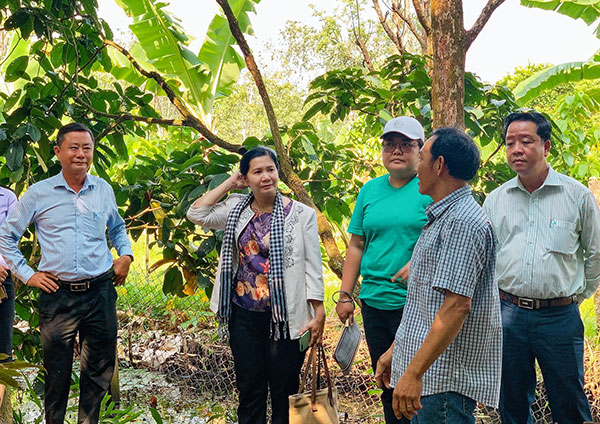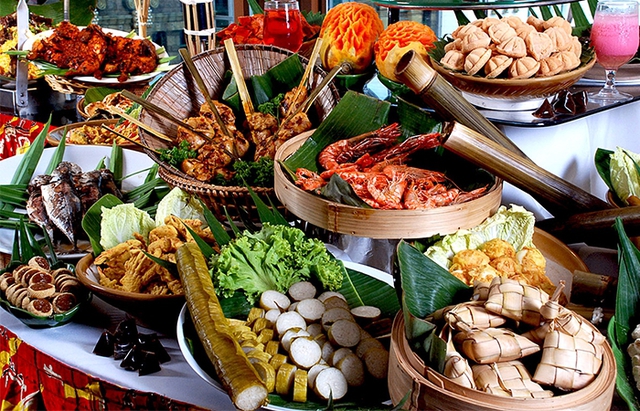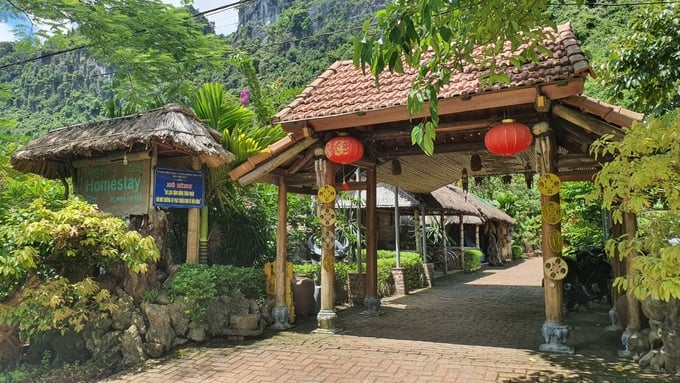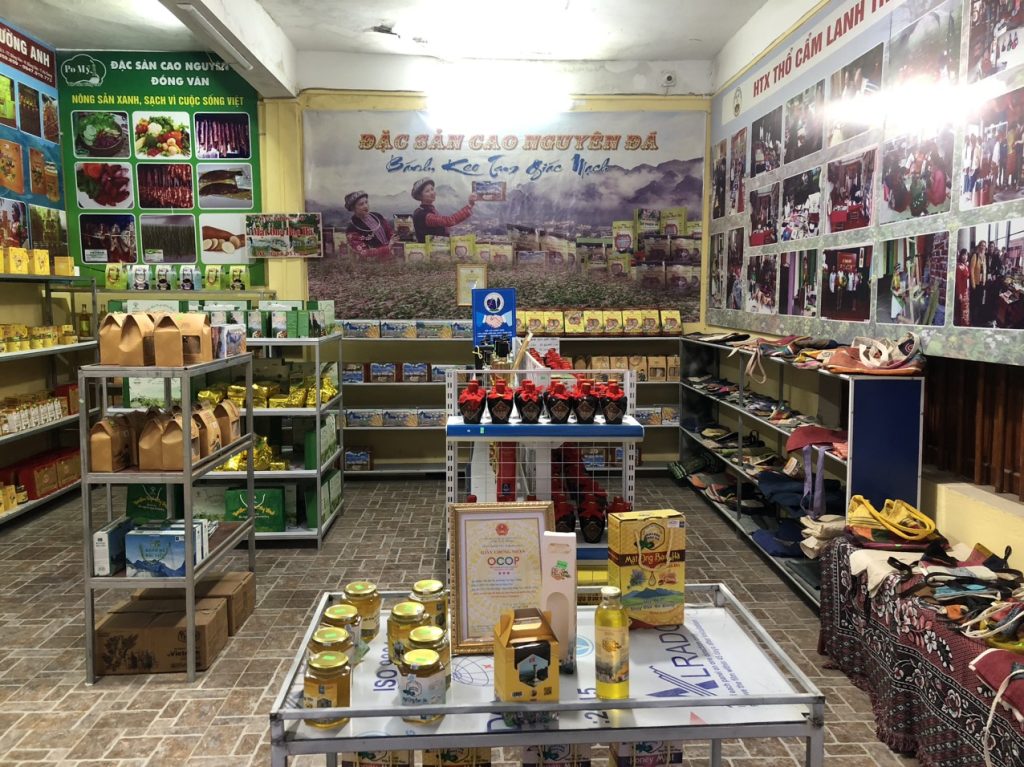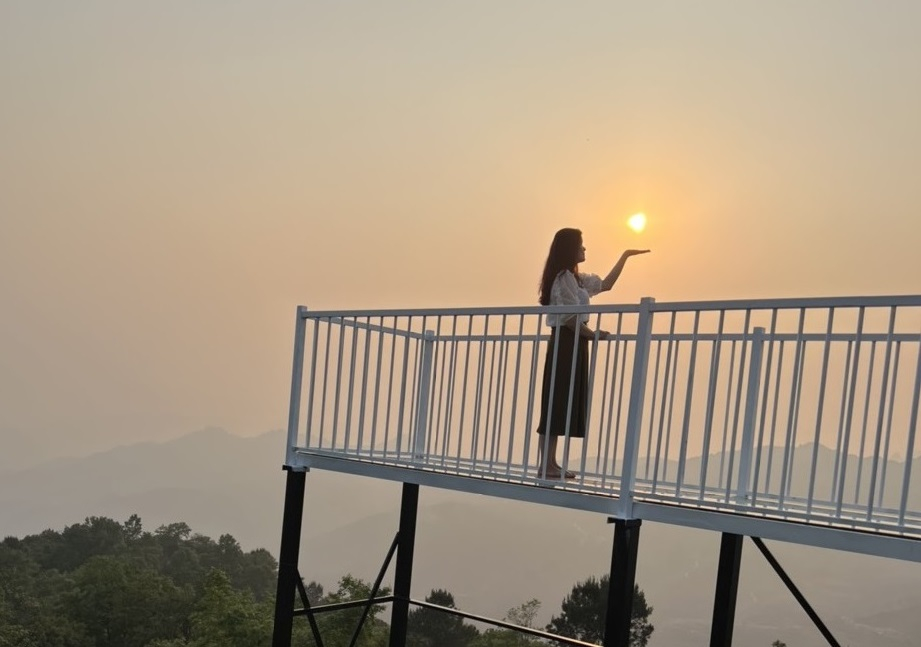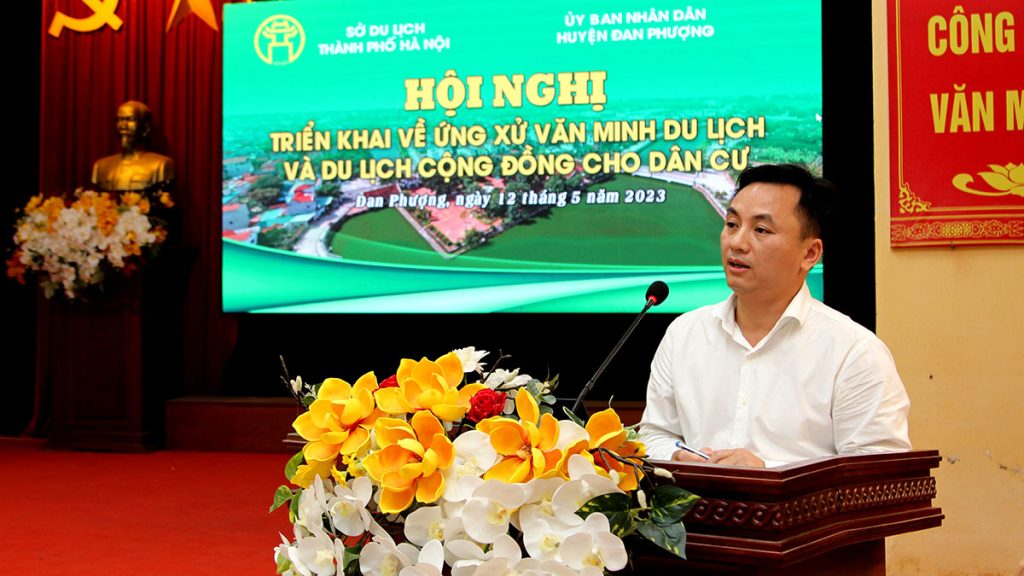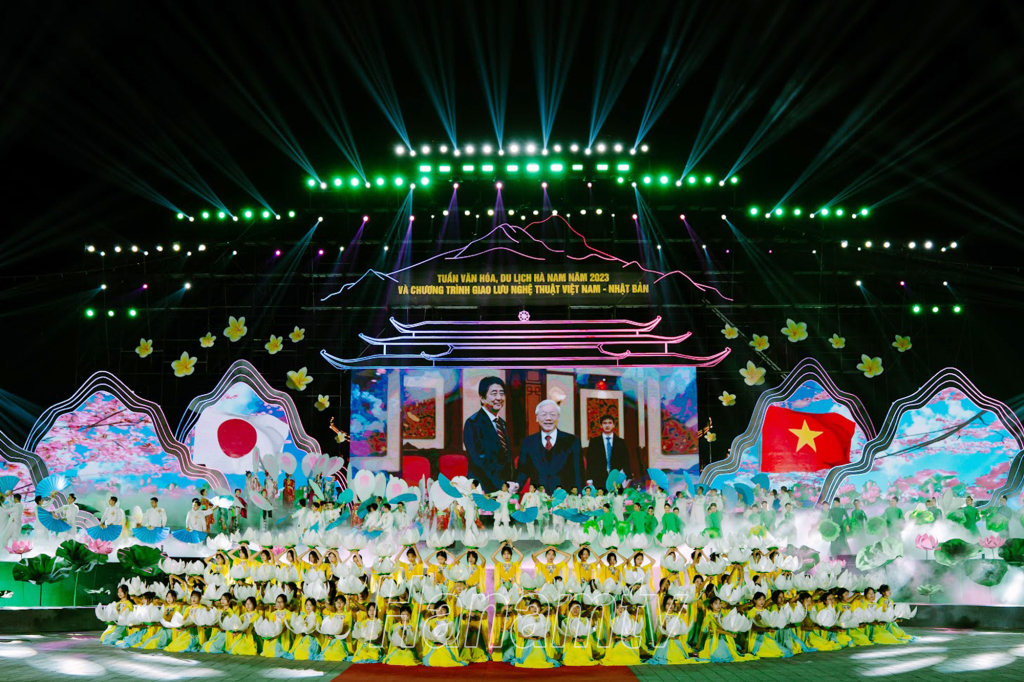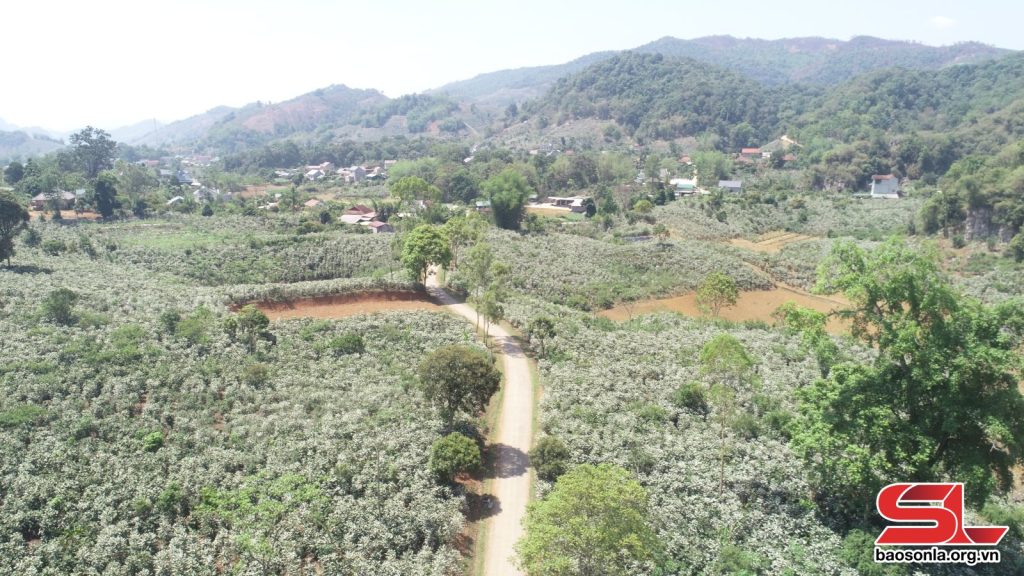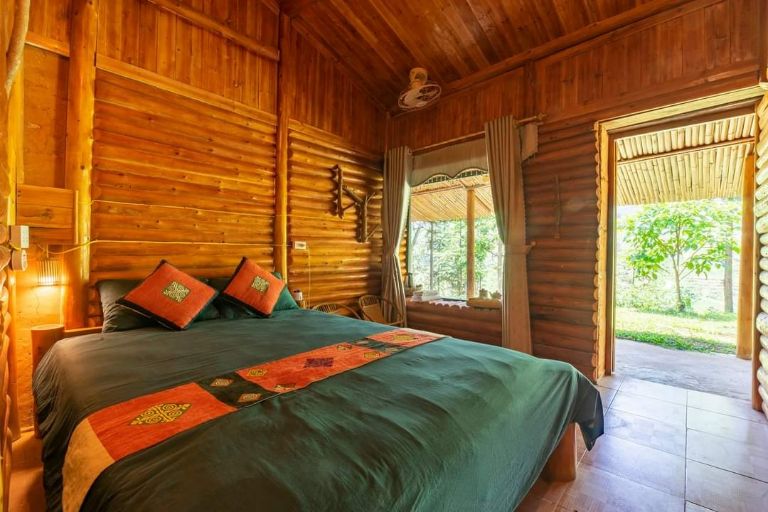Phong Dien District is known as the green belt and a long-standing famous region for fruit trees in Can Tho City. This advantage has contributed to the rapid development of agricultural tourism in the area. It is also one of the tourism sectors emphasized by the City Tourism Department through the project “Development of Agricultural Tourism in Can Tho City from 2021 to 2025, vision to 2030.” However, in order to achieve breakthrough development, several difficulties need to be overcome…
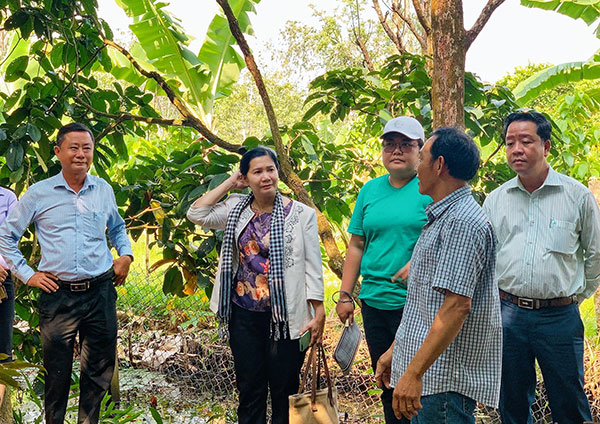
Mr. Nguyen Tan Quang (second from the right), the owner of the Giao Duong Ecotourism Garden, shares his aspirations for agricultural tourism when the relevant authorities come for assessment.
Advantages of agricultural tourism
Phong Dien District has over 8,500 hectares of fruit orchards, accounting for one-third of the total fruit orchard area in Can Tho City. The land in Phong Dien is also famous for its many specialty fruits such as Ha Chau berries, star apples, durians, and mangosteens. This advantage has contributed to the rapid development of ecotourism and agricultural tourism in Phong Dien. Increasingly, long-established orchards are combining agriculture with tourism. Mr. Nguyen Tan Quang, the owner of the Giao Duong Ecotourism Garden (159 Nhon Loc 1, Phong Dien town), says, “My family has been involved in tourism since the early 1990s. Mainly berries and mangosteens are grown naturally, so during the fruit season, we have many visitors.” Mr. Pham Van Hoang, the owner of 9 Hong Garden (398 My Nhon hamlet, My Khanh commune), shares, “In the past, my family was engaged in farming, but we have been in the tourism business for several years now. My garden covers an area of 15,000 square meters, mainly planted with rambutans, berries, and durians. The garden remains as it was, so many visitors come back because they love the fresh garden atmosphere and natural fruits.”
Currently, Phong Dien has 65 tourist attractions and historical-cultural sites, of which garden spots and ecotourism areas account for over two-thirds. Most of the garden attractions here are long-established orchards that make use of local specialties. For example, the Ut Dzach ecotourism garden, traditional banh hoi mat vong (a type of local dish) establishment (509 Provincial Road 61B, Nhon Binh hamlet, Nhon Ai commune) combine orchard-based economic activities with tourism by showcasing the traditional craft of making banh hoi mat vong. Mr. Tran Thien Canh, the garden owner, says, “My garden has been established for decades, mainly cultivating ha chau berries and mangosteens. We harvest several tons of fruit each season. When we engage in tourism, we not only generate income from our orchard but also from visitors who come to explore and experience our family’s banh hoi-making facility.”
With dual profits from agriculture and tourism, many households in Phong Dien have transitioned to agricultural tourism. In villages such as My Khanh, Nhon Ai, Nhon Nghia, there has been significant development in tourism. Among them, many establishments focus on high-tech agricultural tourism. Mr. Pham Ngoc Da, the Director of the High-Tech Agricultural Cooperative Giot Phu Sa (Nguyen Van Cu Street, My Khanh commune), states, “My model is high-tech agricultural tourism, emphasizing products that are beneficial to health. Specifically, we employ organic processes in cultivating Cordyceps militaris. In our future plans, we are constructing a resort that combines the experience of a garden oasis with health care treatments.”
The recent development of agricultural tourism destinations aligns with the local tourism orientation, which emphasizes ecotourism and sustainable green tourism. This is also in line with the project “Development of Agricultural Tourism in Can Tho City from 2021 to 2025, vision to 2030.” The project aims to effectively utilize the agricultural resources for tourism development in a sustainable manner, enhance the competitiveness of products, contribute to diversifying the tourism products and services in Can Tho, and establish the brand of agricultural tourism in Can Tho. Based on practical surveys, the City Tourism Department has been developing suitable agricultural tourism models and providing recommendations for policies and mechanisms to promote the development of agricultural tourism. Phong Dien is identified as one of the key areas for planning and establishing various agricultural tourism models and products.

Durian Orchard in Phong Dien
Nevertheless, there are still many challenges remaining
Although Phong Dien has strengths in agricultural tourism and has been developing this type of tourism for a long time, the local area still faces numerous challenges in exploitation and development.
Mr. Pham Van Hoang, owner of 9 Hong Garden, says, “Currently, we encounter difficulties when converting land use for tourism purposes. My family’s orchard has been cultivated for many years as agricultural land, and now, according to the new regulations, we need to convert it for tourism purposes. If we have to convert the entire 15,000 square meters of land, my family simply cannot afford it. Moreover, the transportation infrastructure to the orchard locations is difficult and deteriorating, so I also propose that the tourism industry and local authorities pay attention to this issue.” Sharing a similar viewpoint, Mr. Tran Thien Canh, owner of the Ut Dzach eco-tourism garden, traditional banh hoi mat vong establishment, reveals, “Although the roads have improved, we still face difficulties. I have connected with travel agencies in Ho Chi Minh City multiple times to invite them for surveys to develop tour itineraries, but their response has always been that the roads cannot accommodate large vehicles, so how can they bring tourists here? I hope the local authorities and relevant agencies pay attention to this issue. Additionally, since our family has been operating independently, we face financial difficulties, and the investments are made in a makeshift manner, which sometimes affects the quality of our services and products. Therefore, we also desire a policy framework that supports farmers in the field of tourism.”
Mr. Nguyen Tan Quang, owner of the Giao Duong Ecotourism Garden, expresses, “In terms of techniques, we farmers can support each other, but when it comes to the methodology of tourism, most of us are self-taught and lack formal training. We don’t know how to develop suitable products and services. Therefore, I also hope to have more training courses and study trips to learn from effective agricultural tourism models. Furthermore, I hope the local authorities and relevant agencies can support us in terms of promotion and connecting with travel agencies. Since we operate independently, our customer base is also unstable.” On the other hand, Mr. Ngo Binh Tri, owner of the Vam Xang Rustic area, expresses concerns, “Phong Dien is a green tourism area, and the city has already set appropriate development directions for the region. However, an urgent issue that needs attention is the waste in the river and canal systems. Environmental issues are crucial in shaping the tourism image for visitors. Therefore, I also propose that the City’s Tourism Department and local authorities should pay attention to and provide solutions for this issue.”
Ms. Dao Thi Thanh Thuy, Deputy Director of the Department of Culture, Sports, and Tourism of Can Tho City, states: “We have conducted multiple surveys to assess the current situation of tourism in Phong Dien, as well as the progress of agricultural tourism development in the past year. Phong Dien is one of the localities that the city’s tourism sector has targeted for promoting the development of agricultural and river tourism. However, in reality, there are many difficulties in the operation of agricultural tourism in the area, and we are actively listening to find solutions to overcome them. Based on the surveys conducted, we will rely on the actual facts to make proposals and recommendations for the People’s Committee to submit to the People’s Council regarding mechanisms and policies for agricultural tourism and river tourism, with the aim of constructing new resolutions.
Phong Dien tourism has made an impression on visitors with its unique characteristics of abundant orchards and hospitable locals. However, the orchard sites here are still small-scale and have not been adequately and systematically invested in. Therefore, in order to develop agricultural tourism, the local authorities and relevant agencies need to provide appropriate guidance and supportive measures, gradually shaping and building the green tourism brand of Phong Dien.
Source: Can Tho News – Translated by Hoang Dat
Can Tho Portal – www.cantho.gov.vn

